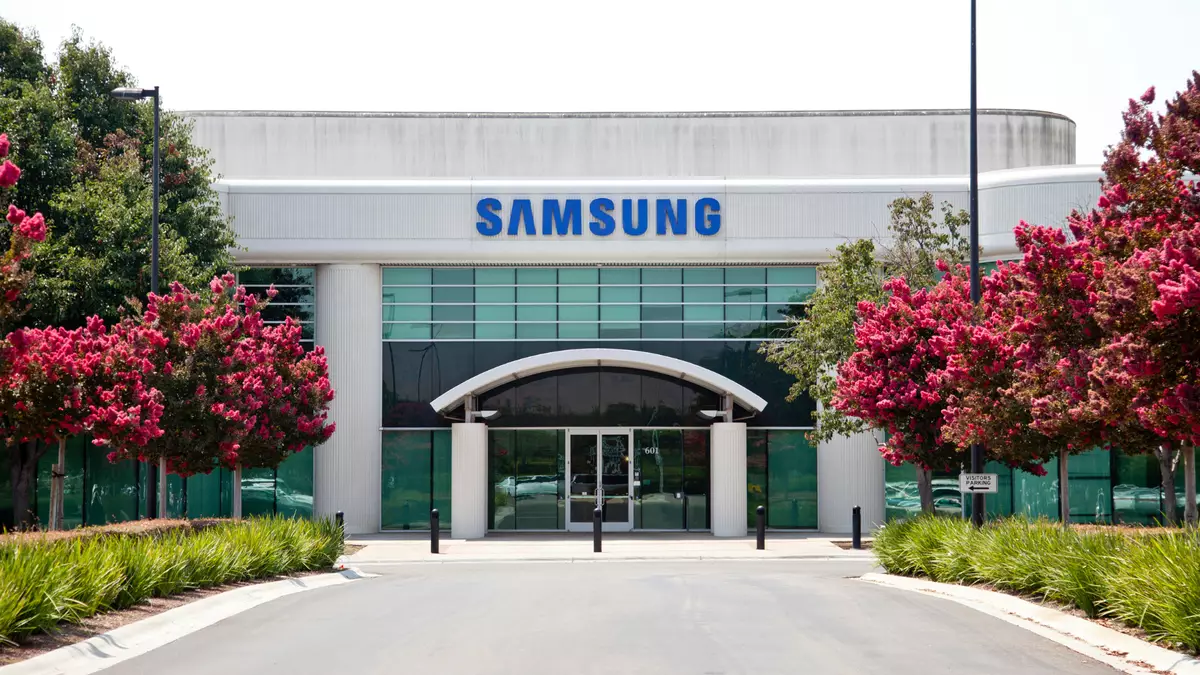In the turbulent landscape of international trade, companies are either pushed to the brink or propelled to unexpected highs. Samsung Electronics, a titan in the tech industry, has recently emerged on the latter end of this spectrum, showcasing how strategic market behavior can yield remarkable benefits, even when the economic climate appears overcast. With the imposition of tariffs by the U.S. government, fears about rising prices have compelled consumers to buy proactively, leading to an impressive profit boost for Samsung. During the first quarter of this year, the company recorded an operating profit of 6.6 trillion won ($4.47 billion), surpassing analysts’ forecasts by a significant margin.
The Role of Consumer Panic in Profit Margins
The unexpected increase in Samsung’s profits can largely be attributed to consumer behavior driven by fear—specifically, the fear of increased costs associated with forthcoming tariffs. As distributors began to signal potential price hikes, customers rushed to acquire memory chips and mobile devices ahead of the price surge. This is a classic example of how market psychology plays a crucial role in shaping corporate success, even amidst seemingly adverse conditions.
The response of consumers can be viewed not just as panic buying, but as a strategic move to secure crucial components. According to experts, this surge in demand highlights a significant shift in purchasing habits. Companies that typically adhere to a Just-in-Time inventory strategy—a model designed to minimize waste by maintaining minimal stock—are now pivoting to a more forward-thinking approach of inventory management. This shift is indicative of an economic climate that continuously keeps manufacturers guessing, as they grapple with the precarious outcome of evolving tariff landscapes.
The Tariff Effect: Long-term Implications
While immediate profits may suggest an ideal scenario for Samsung, the longer-term implications of the U.S. government’s tariffs are less certain. As U.S. President Donald Trump escalated tariffs on key trading partners, including raising rates on Vietnam, China, and Taiwan to as high as 32%, concerns regarding future shipments and inventory levels loom large. Analysts caution that the surge seen in the first quarter may not be sustainable, and they anticipate a decline in shipments in the following periods.
These fluctuating dynamics pose a challenge for manufacturers relying on the stability typically offered by steady pricing and predictable demand. Prices rising without corresponding increases in profit margins could lead to a diminishing consumer appetite for these technologies, raising questions about the sustainability of current profit models within the tech sector.
Impacts on the Broader Tech Market
Moreover, Samsung’s situation is not an isolated phenomenon; it exemplifies a broader trend affecting the technology market. Companies like Nintendo are already feeling the pinch. Recent reports indicated that Nintendo had to pause preorders for the highly-anticipated Switch 2, implying a reassessment of pricing strategies in an attempt to honor initial commitments while coping with the potential ripple effects of tariffs.
Similarly, Framework encountered its own obstacles when it decided to retract its cheaper 13-inch modular laptop variant from the market. This pattern points to a concerning reality—manufacturers may soon find themselves in a precarious position where they are forced to uphold prices at potentially unsustainable levels, embracing loss to maintain customer satisfaction.
The Uncertain Future of Tech Pricing
As the first quarter comes to a close with surprising profits for Samsung, the tech industry may be standing on the edge of a precarious cliff. With the tariffs causing potential upheaval in prices across a wide array of tech products, laptops and smartphones are likely to be just the beginning of this price turbulence. One might wonder how such shifting factors will influence innovative product launches or hinder major companies’ market dexterity in the long term.
The data suggests that while tariffs may have offered a momentary boon to Samsung, the broader implications could lead to a hard landing for both producers and consumers in the tech marketplace. The intricate interplay of tariffs, consumer psychology, and corporate strategy paints a complex picture, one that calls for keen observation in the months to come as the questions of profitability versus sustainability simmer on the surface.

